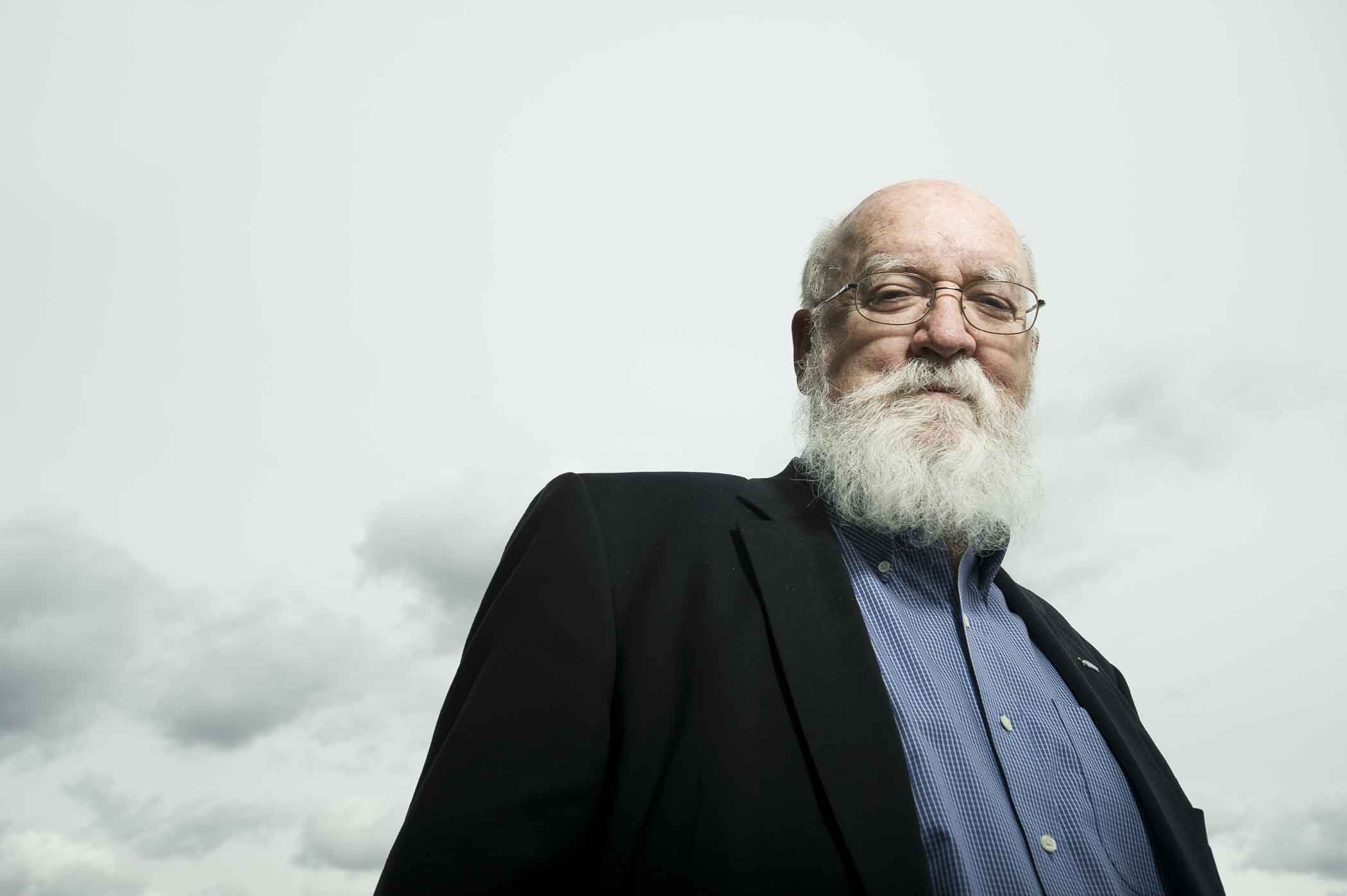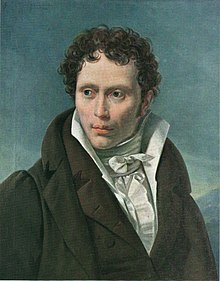- James Jeans, The Mysterious Universe
I don't think it is unfair to say that most physicists are in some sense physicalists, that they believe that all that exists are physical objects. It would be foolish to say that they are dogmatic in this kind of materialism, a physicist would admit that there are fluids and gases in addition to atoms, fields and void - not to mention chairs, computers, brains and maybe even minds and social forces. Even if they say they do not believe in social forces, they would still act as if they exist. James Jeans - one of the cofounders of physical cosmology and major figure in early quantum mechanics - is an exception, possibly the only major physicist to endorse subjective idealism. I'd like to think "What is the best argument one could make for idealism using modern science as a guide?". This is just my first pass, and it will be a little thick with the philosophy - since I understand it less than the physics I feel the need to explain it more.
Immanuel Kant
First, a bit of background. Idealism was created by the German philosopher Immanuel Kant. His goal was to make the world safe for objective science in the light of what he understood to be David Hume's subjective attack. It was later amended and extended by Schopenhauer and others.
An example will make this attack clear. Imagine you see a baseball flying through the air. A moment later, the same baseball is soaring in the opposite direction. I ask you how this happened. You point out that there is a baseball game going on and the batter most likely hit it. How do you know that? The answer is simple, but pregnant with complexity. You learned that baseball bats cause baseballs to change their course. More generally, Hume observed, you have never seen anything cause anything else, but have only learned to think of it that way. The answer for of how the baseball knew what course to take is more difficult, and I'll return to it later. Another example: in modern psychology we have learned why honey is sweet - it is sweet because we like it. The way that we project our liking of honey onto the world is denoted in the English Language as "sweet". These two behaviors, projecting an inner feeling onto the world, are found throughout human nature.
David Hume
This creates a trap. If so many of our notions are subjective, then how can we examine the world in an objective way? In his most complete work, Treatise On Human Nature, Hume escaped this trap by appealing to the notion of equilibrium. We may start out by false beliefs, but they cannot be stable against sufficient reflection, experiment and experience. This is a cheerful way of viewing the world. It is also erupting with implications and uses. Hume and his informal student Adam Smith used the concepts to develop psychology and economics. Unfortunately, Kant never saw this book or its solution. He only read Hume's An Enquiry Concerning Human Understanding, which contained the criticism but not the escape hatch. Kant was troubled, conflicted. He held the incredible success of the new Newtonian Physics in the one hand and a devastating criticism of the concept of objective science in the other.
Kant's solution is very complex. He had many disadvantages that we do not. In his time: Formal logic was in a pathetic state, psychology and anthropology simply did not exist, field theory did not exist in any form, the concept of biological evolution was a century off and even the classical mechanics and mathematics the informed him was frequently informal and its implications often deeply unclear. In view of this, Kant's achievements are very great. Today, we can afford to coast over what was very difficult for him.
The Dang-An-Sich
We start with a division between the particles, strings, fields and void that make up the world. This is the world as it exists without organization. Kant called the particles, strings, fields and void that make up an object the "Dang-An-Sich" (the "thing in itself"), but this is incomplete. As Schopenhauer pointed out, the distinctions between interacting objects are not in themselves "real" in the sense Kant wants (Why? Schopenhauer would say correctly, "Because energy is only conserved for the whole system.". Schopenhauer's exposition in general benefits from the enormous progress in the understanding of classical mechanics between their lifetimes). The universe as a whole must make up one ball of particles/strings/fields/voids. Schopenhauer called the big ball the Great Will. I will call it The Dang-An-Sich, the definite article. Very little of what we think of exists at this micro-macro-mega-meso-perspective. There are no tables, no chairs, no phases of matter, no minds, no social forces, no words, none of that. The Dang-An-Sich is an awesome object, but empty of content.
It is now possible to return to the question of how the baseball knew there was a game going on. Obviously. the baseball didn't, the system merely evolved in the way it did. From the point of view of the particles/strings/fields/voids in the field, the forces merely redistributed themselves according to fixed rules (the principle of least action, path-integral, etc.). The internal dynamics of The Dang-An-Sich are completely objective, but not terribly useful. The movements of a water molecule are from a purely local perspective, just what they are. They are ignorant of the fact the phase of the system as a whole.
It is only once we "choose" to think of The Dang-An-Sich as having temperature, pressure and other macro-properties that we get those properties back. This is called in physics "coarse graining". These higher level variables are the statistics of The Dang-An-Sich. The choice of statistical functions is not wholly arbitrary. Some objects are forced into it, the so-called necessary statistics. The best "choices" of partitions of The Dang-An-Sich into macro-states is done in such a way that knowledge of The Dang-An-Sich would not improve predictions of the evolution of the chosen macro-variables. They are termed "sufficient statistics". The basic thermodynamic functions take this form. You can read more here and here.
This new world has many new objects in it. These objects depend on our representations of The Dang-An-Sich. Not all representations are the same. One person may think in terms in temperature, another in inverse temperature. However, once a representation is chosen, the evolution of the chosen statistics is objective. We can do as we will, but we cannot will as we will. Still, this level of description is far richer than The Dang-An-Sich. We can now distinguish ice and water, a crystal from the air that surrounds it, and much more besides. However, this does not quite bring us to the world of experience. Schopenhauer might have called this world, "My Physical Representation" (if he were interested in it).
Daniel Dennett
There is still much distance to go until we get to idealism proper. Philosopher Daniel Dennett gives a sketch of how to extend the logic of partitioning The Dang-An-Sich into My Physical Representaion to include tables, chairs, minds, sweetness and social forces. He follows von Uexküll and James Gibson in developing this sketch into testable theories. Tables and chairs are defined in our minds not by their physical properties, but how they can be used. This new method of distinguishing objects are called the objects "affordances". This now expanded version of My Physical Representation was called by Schopenhauer "My Representation". My Representation is not objective given the evolution of The Dang-An-Sich. I can, by piling things on a chair often enough, come to think of it as a table. Schopenhauer was particularly interested in mystical practices, which he thought could give one conscious control over how one partitioned the world by affordances.
To recapitulate: in The Dang-An-Sich there were atoms/etc, but nothing that could be called a table. In My Physical Representation, there could be a solid with such and such mass and such and such composition. Now, in My Representation, there are finally tables which I recognize by the affordances it gives me. This is world is enormously more rich than the previous. As Jeans might have said better: "The Universe looks more like my thoughts than like a great, independent machine.".
Arthur Schopenhauer
Schopenhauer's pessimism can be understood best in this context. In "The Sad World", as Brouwer put it, the only thing that cares about living things are other living things. Many people caricature and misunderstand Dawkins's The Selfish Gene as implying that individuals are selfish. Far from it! The point of the title is that genes, like all other non-living things, do not care about us. They, after all, gave us finite lifespans just to avoid competing with themselves. The sun doesn't care whether we freeze or burn. To The Ding-An-Sich, there is no I to burn, nor even any burning. Occasionally oxygen atoms are moved by the rules closer to some non-oxygen atoms, but even this may be too high a level of description for The Dang-An-Sich. To Schopenhauer, the indifference of all things implied that the highest spiritual act is to expand one's mind to consciousness of The Dan-An-Sich - which is to say into nothingness. To hedge his bet he allowed that there might be something beyond The Dang-An-Sich only accessible to mystics, but this is not supported by his general system. I do not agree with this nihilism. I think that the neutrality of The Dang-An-Sich heightens the importance, uniqueness and scarcity of kindness for humans and animals.
What about the counter arguments to idealism? Daniel Dennett is not an Idealist, but I don't think he would object to nothing in my presentation here. I think he would note that if this was what Idealists meant, then one could be an Idealist Physicalist. He would be right - by my lights you could be an Subjective Idealist/Objective Physicalist and which you call yourself depends more on mood than principle. I would say that The Dang-An-Sich and My Representation are just old ways of distinguishing the scientific and the manifest world-views. If he wanted to insist on not being an Idealist even then, he could then respond that the grammar of idealism isn't an optimal partition of the space of ideas, that it may even be an impediment to research. (And Jeans's distinction between machines and thoughts is unclear at best.) He may have a point, but it is much weaker than a genuine, hardcore physicalist would hope.
L E J Brouwer
This post was inspired by reading Life, Art And Mysticism by L E J Brouwer. It's a weird book.







